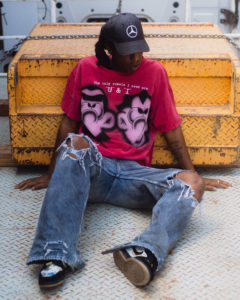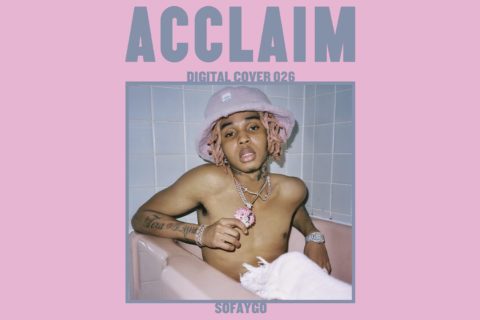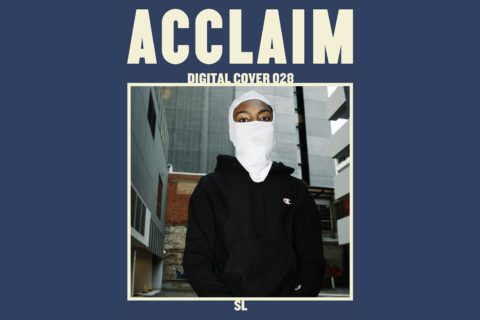
***This page is meant for mobile viewing only, if you are on Desktop we recommend viewing the article here***
British musician Bakar shakes his head and laughs when I ask him if there’s anything weird about being a celebrity.
We’re sitting between the blindingly white walls of a barbershop in inner city Melbourne as Bakar slumps slightly in his chair, wearing a pin-stripe button up, dark blue shoes and a signature beanie that covers thickly braided hair. Having grown up in the London district of Camden town, he’s a long way from home. The reason I ask him this celebrity-oriented question is because four years ago he’d released the deceivingly brooding and introspective ‘Hell N Back’– which, according to him, was actually a chipper tale of hope – which catapulted him into the sensitive pop punk-star arena and gained him a global audience. It was a lightning-quick launch into fame and miles across the ocean had cemented a loyal indie fanbase on the southern shores of Australia. He’s here now to tour his third album, Halo.
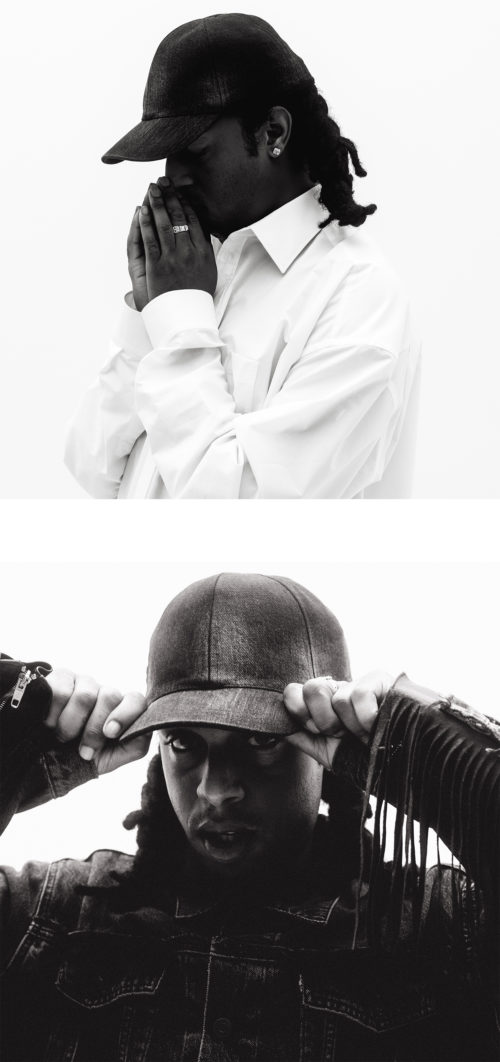
Thank You: Masons
“Celebrity, I don’t even know what that is,” he says, “It’s like a tabloid term…I don’t know, it’s such a weird term. What qualifies you as that. I don’t know.”
“Didn’t some guys just stop you on the street before?” I ask.
Moments ago, Bakar had been switching between expensive oversized garments posing for pictures. First, on a white backdrop and then out in the street – at one point standing on the back of a truck. On his way back into the shop, two fans had stopped him, floating around the premises, grinning.
“Yeah, they did. And that’s love,” he continues, “That’s what I’m saying. I’m flying 24 hours away from home. People know my songs. I’m just grateful. But I’d never consider myself a celebrity. I’m just a musician that’s super blessed to be able to travel the world and sing songs.”
While you might think this is some automated response that renowned people give to a question about fame or a humble and egoless attempt at relating to the “normal” person, Bakar actually seems unbothered. After four years, it’s enough time for him to figure out his priorities. And one of those seems to be about establishing real-life connections rather than a plasticised high profile.
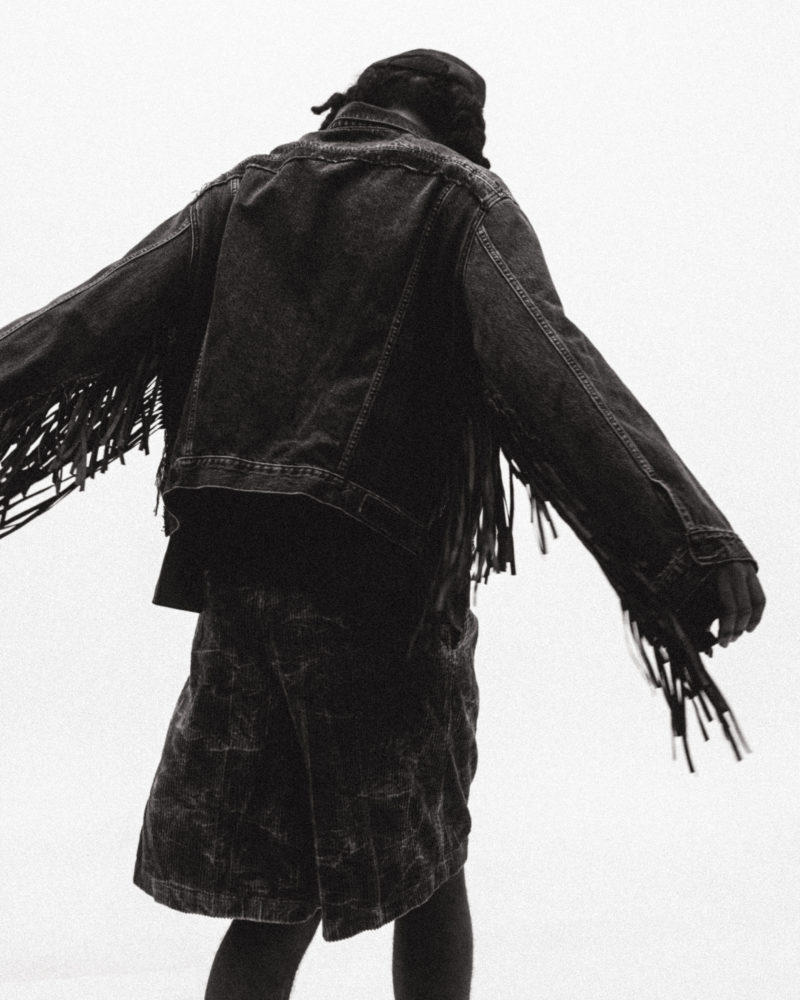
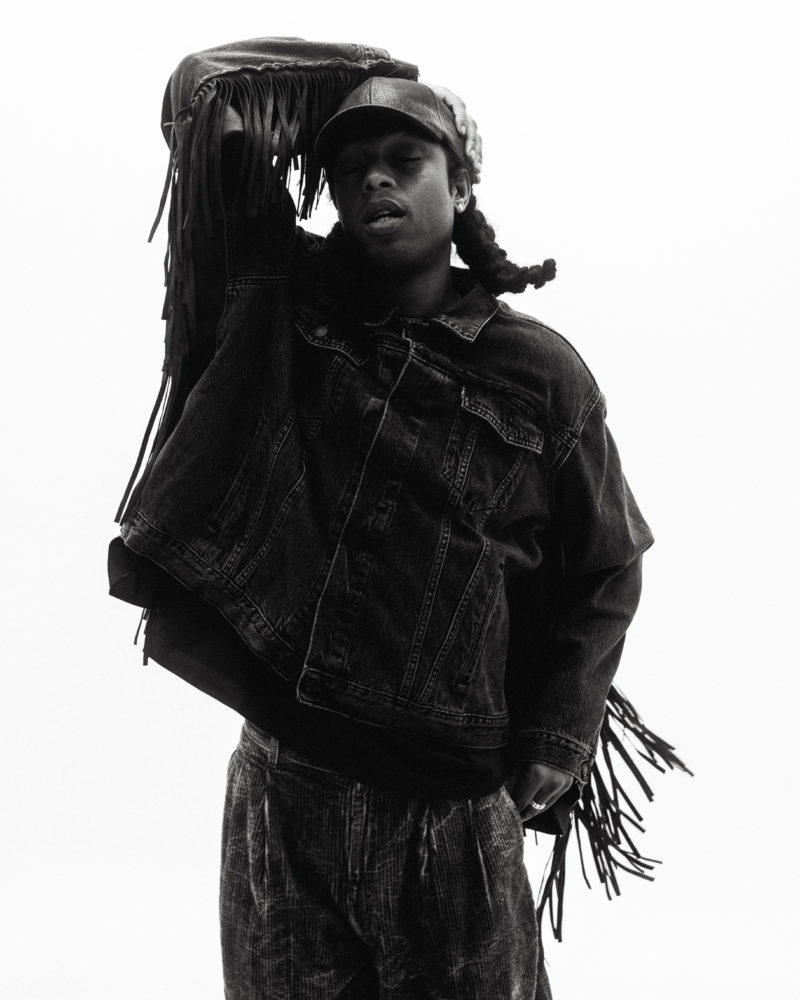
Thank You: Masons
During his Australian shows, however, the track was the obvious standout. And during his live interpretation of it, his back-and-forth with the audience became a masterclass in crowd interaction. In Brisbane especially, multiple viral videos saw the 29-year-old artist singing from the crowd on a second-story platform as they pat him on the back and sang, “Could you tell where my head was at when you found me” The overwhelmingly positive atmosphere was also indicative of the success of his 2-week ago release, Halo.
“I love it. I love it. I love. I love it,” he says, “It always feels great to have new music in the world to feel represented by. I always want to feel like the things people are listening to right now is an updated version of myself.”
Halo is an album for the people that plays like a spontaneous afternoon in the summer that bleeds into a warm, unplanned night. It’s an exploration of youth with lyrics about relationships, self-discovery and at times, self-doubt set on the backdrop of simple instrumentation that blends pop, rock and rap. It’s also his quickest record made to date, recorded mostly on the road. Though he won’t share with me what particular events inspired each song, he laughs at the memories.
“I’m trying to think of specifics but if I say specifics it’s just going to be too obvious. That’s all I can say. Day-to-day life is always going to affect what I write,” he says.
At one point I make the mistake of calling his lyricism slightly depressing which is uplifted in turn by sunny sonics. He disagrees, “I always see my music as a light at the end of the tunnel,” he counteracts, “it’s like silver-lining music. It’s like, even when I give you sadness, there’s hope within that sadness.”
It’s an idiosyncratic sound that was prompted by an experimentation of King Krule-oriented sonics (in fact his first foray into music were remixes of the ginger-haired artist’s songs). Boarding school particularly saw him run the gamut of 2000’s indie rock bands that ignited his love for outfits like Arctic Monkeys and Bloc Party (he’s bored of this comparison by the way), “that’s where I discovered bands,” he says, “the things they were listening to was just super different.”
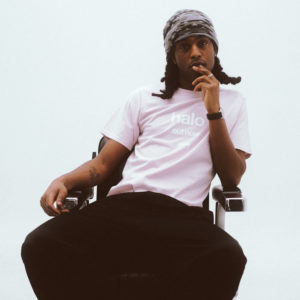
At one point our conversation waivers into a discussion about being a black artist that plays music that’s become synonymous with white musicians – rock, indie rock etc. etc. “I honestly feel like I did it on purpose. I thought, ‘I could rap all day, so I just chose to do something different,” he says.
“It’s still in its infancy in terms of black artists – like a different black thing happening. I’m not the person that started this shit but we definitely took it to a new level.”
It’s here that he asks, “What’s it like growing up in Australia, being creative, in a place that is [majority white]?”
In Australia, where creatives from different backgrounds are usually slotted comfortably into certain cultural microcosms – for example, non-white artists who are conveniently labelled R&B and rap even if their music doesn’t necessarily fit the genres – I answer that there’s progress in terms of opportunity though sometimes it might seem performative.
“I feel like that’s the balance that so many places are towing right now,” he says, “I think that’s a worldwide thing. That’s a Western culture thing. There are so many things where we don’t know if it’s performative.”
“But that’s what I’m saying. We’ll take it,” he adds, “That’s what my song “The Mission” is about. We want nepotism, and even though that’s, quote, unquote, bad, we need it to make progress.”
Bakar has his own subtle ways of inspiring the next generation and that includes platforming voices close to him. His album includes voice recordings from several black women; in fact, Summer Walker is the only other singer on the record. Others include Lil Sims, Kendrick Lamar’s photographer, Rennell Medrano and his model friend, Mona Touggard.
“It’s so important, and it wasn’t even like a thought,” he says, “So many things happened on my records because they were divine. Ultimately, in my heart I want them to happen. I wasn’t thinking about that at the time. My mum has eight sisters. So it’s like so many black women in my life. They’re all strong women.”
As the interview comes to an end and I see Bakar rubbing his eyes – I can’t tell if he’s tired or if he’s just extremely chill – we end again on the meaning of celebrity. His driver (who moments earlier was telling me that he was driving Paul McCartney next week) waits outside in front of a hulking black car with tinted windows. Bakar is ready to go.
“We all brand people, we all judge people. That’s fine,” he says, “but it’s not fine when that brand cheapens a person’s personality. I know people with great depth that are considered celebrities and it cheapens them.”
“Honestly, I just consider myself a musician that is popular as fuck.”
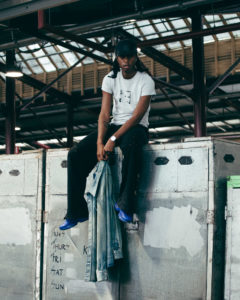
WORDS: JULIE FENWICK
PHOTOGRAPHY: WILHELM PHILIPP
STYLING: GREY GHOST (JEREMY KOREN)
STYLIST ASSISTANT: CARLIN JOHN STEPHENSON
PRODUCER: CASS NAVARRO
CLOTHING THANKS TO HARROLDS, MASONS
SHOT AT AREA STUDIO


